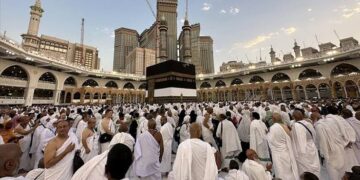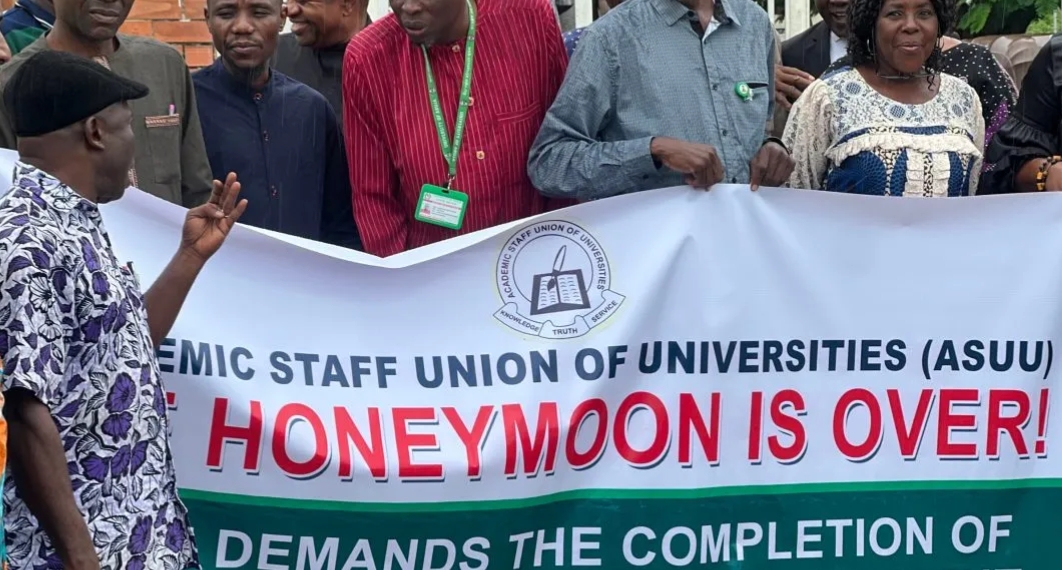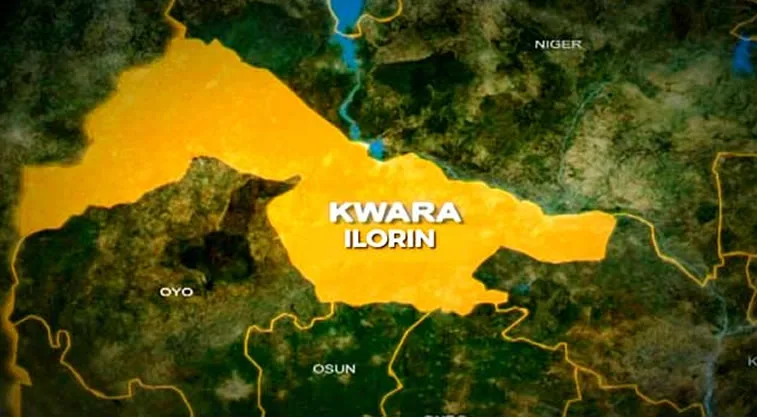In a move that has left many Nigerians concerned, Saudi Arabia recently imposed visa restrictions on travelers from Nigeria and 13 other countries.
According to the official notice, the restriction, which takes effect on 13 April 2025, impacts multiple visa categories, including business visas (both single and multi-entry), tourist e-visas, and family visit visas.
This sudden change of policy has left thousands of intending Nigerian pilgrims with pressing questions. As the 2025 Hajj season approaches, concerned Muslims across Nigeria are seeking answers: Why did Saudi Arabia impose visa restrictions on Nigeria, and could this decision prevent them from performing this year’s pilgrimage. This article provide answers to the questions below.
- What does it mean to perform Hajj?
Hajj is a deeply significant pilgrimage in Islam, serving as the fifth pillar of the faith, obligating Muslims to journey to Mecca at least once in their lifetime if they are physically and financially able, to fulfill a religious duty, seek forgiveness, and strengthen their fait
It occurs in Dhul-Hijjah, the 12th and final month of the Islamic lunar calendar, between the eighth and 13th days of the month.
This year (2025), Hajj is expected to take place between 4th June to the 9th June 2025 in the Gregorian Calendar, depending on the sighting of the moon.
- Importance of Hajj
For pilgrims, performing Hajj fulfills a religious obligation, but it’s also a deeply spiritual experience of a lifetime for many. It’s seen as a chance to seek God’s forgiveness for past sins, to grow closer to God and to walk in the footsteps of prophets.
Communally, Hajj unites Muslims of diverse races, ethnicities, languages and economic classes from around the world in performing religious rituals and acts of worshipping God at the same time and place.
That leaves many feeling a sense of unity, connection, humility and equality. Pilgrims also show up with their own personal appeals, wishes and experiences.
Many pilgrims bring with them prayer requests from family and friends that they would like to be said on their behalf.
Some spend years hoping and praying to one day perform Hajj or saving up money and waiting for a permit to embark on the trip.
- The visa ban on Nigeria and 13 other countries
Saudi Arabia announced a significant change to its visa policy, restricting nationals from 14 countries, including Nigeria, from applying for new short-term visas.
This restriction follows earlier measures taken in February 2025, when Saudi Arabia temporarily suspended one-year multiple-entry visas indefinitely and restricted travel from these 14 countries to single-entry visas valid for only 30 days.
According to the official notice, Nigerian nationals currently holding valid Saudi visas may continue travelling to the Kingdom until 13 April 2025, but must exit no later than 29 April. After this deadline, affected individuals face potential penalties, including a possible 5-year ban from entering the country.
- List of 14 countries affected by Saudi Arabia visas ban
The affected countries include India, Pakistan, Bangladesh, Egypt, Indonesia, Iraq, Nigeria, Jordan, Algeria, Sudan, Ethiopia, Tunisia, Yemen, and Morocco.
Why did Saudi Arabia impose visa restrictions on Nigeria and others
According to Saudi authorities, the suspension aims to prevent unregistered individuals from attempting the pilgrimage without official permits, which poses safety and logistical challenges.
While Umrah visa holders will still be allowed entry until April 13, the broader visa suspension is expected to remain in place until mid-June, when Hajj concludes.
Under Saudi Arabia’s quota system, each country is allocated a limited number of Hajj permits, typically distributed via a lottery. However, due to the high cost of official packages, many resort to unauthorized travel arrangements.
Such unregistered pilgrims often lack access to essential amenities such as air-conditioned tents, healthcare services, and emergency medical care—making the physically demanding journey even riskier.
The Saudi Foreign Ministry stated that the visa restrictions are intended to streamline travel procedures and enhance safety during the Hajj.
It also warned that individuals found residing illegally in the Kingdom could face a five-year entry ban.
During the 2024 Hajj season, at least 1,301 pilgrims died – most from heat-related causes. The majority of the deceased did not hold official Hajj permits.
Saudi officials reported that around 400,000 unregistered pilgrims participated in the pilgrimage, with a significant number coming from Egypt.
In recent years, many pilgrims have overstayed their visas to join Hajj without official permits, contributing to overcrowding and raising safety concerns.
Authorities also cited concerns over individuals entering the country on business or family visas and then working illegally, a violation that disrupts the labour market and breaches visa conditions.
- Will the visa restriction stop Nigerians from performing 2025 Hajj
The visa restriction of the 14 countries won’t stop anyone including Nigerians from performing the 2025 Hajj.
This is because the restrictions are intended to streamline travel procedures and enhance safety during the Hajj


















